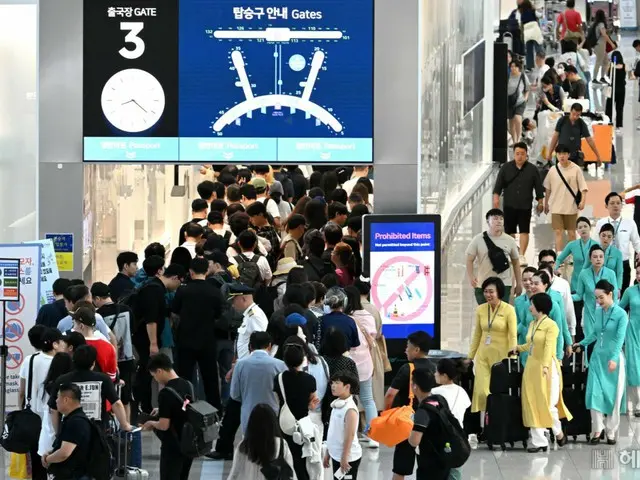The company announced that it had commissioned Search to conduct a survey on "2024 summer vacation plans" among 1,000 office workers aged 19 and over in South Korea from May 31 to June 10.
According to the survey, when asked "Do you have any plans for this summer's vacation?" 48.5% answered "Yes." On the other hand, 20.4% answered "No," and 31.1% said "I haven't decided yet."
In particular, when 51.5% (515 people) of respondents who gave up on their summer vacation or put their plans on hold were asked why, the most common answer at 56.5% was "the burden of vacation costs."
In addition, the reasons given were "There is no paid vacation or there is not enough paid vacation" (12.2%), "The burden of remaining work after vacation" (10.9%), and "I feel reluctant to take vacation" (7.8%).
The number of people who answered that "the burden of vacation expenses makes it difficult to plan vacations" was higher among non-regular employees (61.9%) than among regular employees (51.8%), and higher-level managers (50.0%) than among general employees.
The percentage of employees (61.2%) who answered "I feel uncomfortable taking time off and can't plan my vacation" was the highest among public organizations (15.7%).
"This is roughly four times the rate at workplaces with 300 or more employees (3.8%) and roughly 2.5 times the rate at workplaces with five or fewer employees (6.4%), and is a survey result that directly reflects the outdated organizational culture of public institutions."
According to the group, despite applying for summer vacation using personal annual leave, companies have refused without giving any reason, or forced employees to continue working during vacation due to heavy workloads.
There were also many cases of so-called "bullying" over vacation time, where workers were forced to take leave. Kim Do-ha, a labor consultant for the group, said, "Employees who are still employed cannot easily report to the labor bureau, so they take advantage of the situation and manipulate the management of their workplaces.
Every summer, there are cases where an employer abuses its right to change the timing of annual leave, or where an employee is forced to use up their annual leave to coincide with the employer's summer vacation schedule, even though this does not cause any major disruption to business operations.
"It is necessary to improve awareness of protecting the right to rest and to develop a legal framework for workers who are in the blind spot of labor laws," he said.
" he said.
2024/08/05 05:45 KST
Copyrights(C) Herald wowkorea.jp 104

